Discover Plastisphere: A podcast on plastic pollution in the environment
Plastisphere: A podcast on plastic pollution in the environment

Plastisphere: A podcast on plastic pollution in the environment
Author: Anja Krieger
Subscribed: 132Played: 2,702Subscribe
Share
© All rights reserved
Description
The podcast on plastic, people, and the planet by @anjakrieger. Plastics have become the basis for our modern lives, but they also pollute the planet. Will we be able to develop a healthy relationship with these materials we’ve created? Follow Anja on a journey into the world of synthetic polymers, their impacts on nature and ourselves, and the global quest to tackle plastic pollution. Her episodes feature a diverse set of voices and viewpoints and explore the issue from many different angles.
67 Episodes
Reverse
It's the elephant in the room: The growth of plastic production and how that contributes to pollution. In this episode, we're taking a look at why it's important to not only tackle the waste plastic causes, but also the source of the issue itself. Anja discusses this with Melanie Bergmann, a marine biologist at Alfred Wegener Institute, Helmholtz Centre for Polar and Marine Research and a plastic pollution researcher for more than a decade, and Kristian Syberg, an environmental scientist and planner from Roskilde University. Both are members of the Scientists' Coalition for an Effective Plastics Treaty.
Sources mentioned:
- Cowger et al. (2024), Global producer responsibility for plastic pollution, Science Advances https://www.science.org/doi/10.1126/sciadv.adj8275
- Borrelle et al. (2020), Predicted growth in plastic waste exceeds efforts to mitigate plastic pollution, Science https://www.science.org/doi/10.1126/science.aba3656
- Lau et al. (2020), Evaluating scenarios toward zero plastic pollution, Science https://www.science.org/doi/10.1126/science.aba9475
- Geyer et al. (2017), Production, use, and fate of all plastics ever made, Science Advances https://www.science.org/doi/10.1126/sciadv.1700782
- A.E. Higginson, Greater London Council (1971): The view of a local authority, in: Plastics waste in the environment. Plastics & Polymers supplement No. 4, September 1971, The Plastics Institute, London (not online, can be ordered via libraries). For a screenshot of the first pages, check out this post on LinkedIn: https://www.linkedin.com/feed/update/urn:li:activity:7401522510678163456?commentUrn=urn%3Ali%3Acomment%3A%28activity%3A7401522510678163456%2C7401528231109234690%29&dashCommentUrn=urn%3Ali%3Afsd_comment%3A%287401528231109234690%2Curn%3Ali%3Aactivity%3A7401522510678163456%29
You’ve probably heard the mantra of reduce, reuse, recycle. And oftentimes, it’s that last word, recycle, that we think of when looking to solve plastic pollution. But the order of that mantra has a deeper meaning, it’s a hierachy, sorted by priorities. So to reduce the waste we produce, the first and best way is to reduce what we use. If that’s not possible, the second best option is to reuse, to repair, or repurpose. Only if if that is not viable anymore should we consider recycling. We already discussed these steps towards a circular economy in our previous episode. In this follow-up, we’ll take a look at reuse with Froilan Grate, the Asia-Pacific Director of the Global Alliance for Incinerator Alternatives (GAIA), based in the Philippines, and Salisa Traipipitsiriwat from Thailand, a Senior Campaigner at the Environmental Justice Foundation, also part of GAIA.
Intro in Thai by Salisa.
When we speak about plastic pollution, a central idea to solve it is that of the circular economy. And when this idea of circularity is mentioned, recycling is often the first thing that comes to mind. But recycling is just one of the elements in the toolbox towards a circular society, and not necessarily the most preferable one. A few months ago, I had the chance to chat about this with Arturo Castillo, an assistant professor in circular economy and circular society at Utrecht University. Arturo is a member of the Scientists Coalition for an Effective Plastics Treaty, and during the negotiations in Geneva, he took me on a journey through the many meanings of the circular economy.
Wouldn’t it be great to have something like guilt-free plastics? A plastic product you can just buy without worrying that you are contributing to pollution in the environment? That’s the promise of plastic credits.
The idea is that if you do have to buy a plastic product, this amount of plastic is being offset or saved from the environment somewhere else. This is similar to the concept of carbon credits to tackle climate change. But there’s a lot of criticism of the idea of offsetting plastics or greenhouse gases this way. Are these credits really doing what they claim to do?
In this episode we’re going to hear a story from Kenya, and more specifically, Dandora. Dandora is a neighborhood in Nairobi and the home of Kenya’s biggest dumpside - an open field with mountains of trash and waste. It’s the workplace of Dandora’s waste pickers, the people making a living from collecting anything valuable they find on the dumpsite. These waste pickers doing a hard and dangerous job, and face a lot of competition. They compete with the big machines that move the trash around, their fellow waste workers, and now, they are also competing with a new concept: Plastic credits.
I learned more about this on the sidelines of the plastic treaty talks in Geneva this summer, where I met Benard Ogembo from Kenya and Conor McGlone from the UK, the two journalists who investigated the connection between plastic credits and the Dandora dumpsite. We were later joined by Arpita Bhagat, the plastic policy lead of GAIA Asia Pacific, an organization with deep insights into the situation of waste pickers.
Read Benard's and Conor's story on Desmog: https://www.desmog.com/2025/08/05/new-global-market-for-plastic-credits-threatens-livelihoods-at-kenyan-dump/
Read the GAIA Smoke & Mirrors report: https://www.breakfreefromplastic.org/wp-content/uploads/2023/12/NOV-29-2023_Smoke-and-Mirrors-the-Realities-of-Plastic-Credits-and-Offsetting.pdf
Original sounds from the Dandora dumpsite in Anja's intro by James Wakibia. Intro in Dholuo by Benard Ogembo.
+++Podcast recommendation+++ There’s a concrete yard with piles of plastic, and lying on the ground is the body of a boy – grotesquely ripped apart. Who was he? And what really happened to him? A team of award-winning investigative journalists, including ENDS Report’s Tess Colley and Pippa Neill, set out to find out.
Listen to all three episodes here: https://www.endsreport.com/article/1932516/listen-boy-wasted-bale-plastic-mystery-body-global-investigation
...or wherever you find your podcasts.
In this episode we’ll travel to Turkey with Sedat Gündogdu. Sedat is a Turkish marine biologist and works as a professor at Cukurova University in Adana. When Sedat realized how much plastic trash was polluting the water and land around him, he started to research both its origins and impacts. He began to understand the downsides of microplastics, waste trade, and recycling, and started to talk openly about it. At the plastics treaty negotiations, Anja and Sedat met up to chat about what it means to be a scientist and activist, the scare tactics he experienced and how he fought them off, the waste exports Turkey receives from European countries, and what’s needed to make change.
Listen to Boy Wasted as well: https://www.endsreport.com/article/1932516/listen-boy-wasted-bale-plastic-mystery-body-global-investigation
In this episode, we’re taking a deep dive into plastic chemicals and their impacts on human and environmental health. You’ll learn why it’s not such a great idea to put plastic containers into your dishwasher, and why fatty food is especially prone to absorbing chemicals from food packaging. We’re also discussing a common and mostly misunderstood mantra of toxicology, the claim that it’s always the dose that makes the poison. Well, it turns out, that that’s not always true. We’re looking at how some chemicals in plastics can hack our hormone systems, how the political regulation of chemicals is not sufficient, and what we can do about it. In short, we’re taking a look at our toxic relationship with plastics and chemicals, why it affects some people more thana others, and how we can start fixing it. My guests are Martin Wagner, Professor of Biology at the Norwegian University of Science and Technology NTNU, and Jane Muncke, Managing Director and Chief Scientific Officer at the Food Packaging Forum. We met on the sidelines of the plastics treaty negotiations in Geneva a month ago.
Martin Wagner: https://www.ntnu.edu/employees/martin.wagner
Jane Muncke: https://foodpackagingforum.org/about-us/office/jane-muncke
PlastChem report: https://plastchem-project.org/
The Lancet Countdown on Health and Plastics: https://www.thelancet.com/journals/lancet/article/PIIS0140-6736(25)01447-3/abstract
The Scientists Coalition for an Effective Plastics Treaty: https://ikhapp.org/scientist-about-us/
In this episode, we’re going to head out to the beach for the 40th International Coastal Cleanup Day. It’s a huge event which has been taking place each third Saturday of September for four decades now. Each year that day, hundreds of thousands of people swarm to the shorelines and collect and remove the trash they find. But beyond just cleaning up, International Coastal Cleanup Day is an important part of the science and politics of plastics. But how did it all begin? In this second of a two-episode story, you’ll get to hear the little-known stories of the women who started the beach cleanups in the 1980s. These early activists did not only mobilise citizens to put a global spotlight on plastic pollution. They were also the first to count and classify the trash, which produced invaluable data to better understand the growing environmental issue plastics posed. And right from the beginning, beach cleanups drew the interest of the plastics and packaging industries. We’ll explore this history in more detail with Elsa Devienne. Elsa is an assistant professor in US history at Northumbria University in the UK, and she’s the one who dug up this story.
Start with part one of the story here: https://soundcloud.com/plastisphere-podcast/coastal-cleanup-judie
Based on Elsa's paper: Making Plastics Count: Citizen Science Beach Cleanups and the Ocean Plastic Pollution Crisis (1980s–2020s) https://www.journals.uchicago.edu/doi/abs/10.1086/737351?journalCode=eh
Contact her for a free copy: https://www.northumbria.ac.uk/about-us/our-staff/d/elsa-devienne/
This episode was supported by a British Academy Leverhulme Small Grant and co-produced by Elsa Devienne and Anja Krieger. All recordings with Judie, Linda and Susan by Elsa. Music is by Dorian Roy, and cover art by Maren von Stockhausen.
In this episode, we’re going to head out to the beach for the 40th International Coastal Cleanup Day. It’s a huge event which has been taking place each third Saturday of September for four decades now. Each year that day, hundreds of thousands of people swarm to the shorelines and collect and remove the trash they find. But beyond just cleaning up, International Coastal Cleanup Day is an important part of the science and politics of plastics. But how did it all begin? In the next two episodes, you’ll get to hear the little-known stories of the women who started the beach cleanups in the 1980s. These early activists did not only mobilise citizens to put a global spotlight on plastic pollution. They were also the first to count and classify the trash, which produced invaluable data to better understand the growing environmental issue plastics posed. And right from the beginning, beach cleanups drew the interest of the plastics and packaging industries. We’ll explore this history in more detail with Elsa Devienne. Elsa is an assistant professor in US history at Northumbria University in the UK, and she’s the one who dug up this story.
Find part two of the story here: https://soundcloud.com/plastisphere-podcast/coastal-cleanup-linda
Link to the 1984 video "Get the Drift and Bag it": https://www.youtube.com/watch?v=AEesPuZxCes
Elsa's paper: Making Plastics Count: Citizen Science Beach Cleanups and the Ocean Plastic Pollution Crisis (1980s–2020s) https://www.journals.uchicago.edu/doi/abs/10.1086/737351?journalCode=eh
Contact her for a free copy: https://www.northumbria.ac.uk/about-us/our-staff/d/elsa-devienne/
This episode was supported by a British Academy Leverhulme Small Grant and co-produced by Elsa Devienne and Anja Krieger. All recordings with Judie by Elsa. Music is by Dorian Roy, and cover art by Maren von Stockhausen.
After 11 days of talks between 180 nations in the middle of a heatwave, the final session dragged late into the night. The next morning we learned that the plastics treaty talks had - again - ended without an agreement to tackle plastic pollution. So after recovering from this intense week, Anja got in touch with Alexandra Harrington. Alexandra is an expert in law and she wears many hats: She’s the Chair of the Plastic Pollution Task Force at the World Commission on Environmental Law of the International Union for Conservation of Nature, a Visiting Scholar at McGill University, and a member of the Plastic Treaty Legal Drafting Group. In this episode, they review what really happened in Geneva. And Alexandra has a hopeful message: Don't give up yet on the plastics treaty.
Theme: Dorian Roy
Music: Blue Dot Sessions sessions.blue
- Plasticity https://app.sessions.blue/browse/track/336059
- The Pewter Elephant https://app.sessions.blue/browse/track/335775
- Lush Arborio https://app.sessions.blue/browse/track/335777
- Blue Latex https://app.sessions.blue/browse/track/336061
Sound of protests from GAIA global alliance for incinerator alternatives https://www.youtube.com/watch?v=cMncIHaNdmg
Plenary recordings from the UNEP webcast https://www.youtube.com/@UNEP/streams
How [Not] to Make a Plastics Treaty - Update from Geneva (INC 5.2.) with Neil Tangri by Anja Krieger
Dejea Lyons and Shellan Saling from the Youth Plastic Action Network leave no doubt: To save the Plastics Treaty process and get to a meaningful agreement, serious sh*** needs to happen! Listen to Shellan's statement at the opening plenary and our chat under a tree in front of the United Nations Headquarter in Geneva, Switzerland. Thanks to the security guard who kindly let us sit and record there before he came over and informed us we had set up an alarm by sitting on the ground under the tree, because of "the cables" underneath :) If you're in Geneva: Fast forward all the way to the last ten minutes to get some tips for the morning of August 12, 2025, which is International Youth Day.
How [Not] to Make a Plastics Treaty - Update from Geneva (INC 5.2) with Magnus Lovold by Anja Krieger
When the plastics treaty negotiations in South Korea ended without a result last December, media reports suggested they had failed. But not so fast - the negotiations are far from over, and continue this year. In this episode, you'll get an update on where we stand on the path to a global plan to tackle plastic pollution - and what’s to come. You'll hear from three of the smartest observers of the process: Magnus Lovold from NAIL, the Norwegian Academy of International Law, Chris Dixon from EIA, the Environmental Investigation Agency, and Andrés Del Castillo from CIEL, the Center for International Environmental Law.
Oh, and for the first time, there's an extra little track at the end of the episode. Don't miss it, it's lovely! And a call for support: To travel and stay in Geneva for two weeks will be super expensive. So please help me (Anja, host of this pod) get there if you can. Every contribution helps, no matter how small. You’ll help me continue my work: https://www.paypal.com/paypalme/plastispherepod
Credits: Thanks to Dorian Roy for the theme, Blue Dot Session for additional music, Maren von Stockhausen for the cover art, and the UNEP team for allowing me to use the excerpts from the conference videos.
In this guest episode, G. Sampath and Satyarupa Shekhar discuss the fifth meeting of the UN’s Intergovernmental Negotiating Committee (INC-5) and why it ended without delivering a legally binding treaty to address global plastic pollution.
Continue listening to the full episode here: https://www.thehindu.com/podcast/plastic-pollution-treaty-collapse/article68946877.ece
In recent years, a lot of new research on micro- and nanoplastics has come out. Reporting in the media sounds pretty scary, with nanoplastics found in the human body. What's does the science know for sure at this point, and what is still open and under investigation? Anja speaks with Denise Mitrano, a professor at the Department of Environmental Systems Science at ETH Zurich, the Federal Institute of Technology in Zurich, Switzerland, about media reports, journalism, the state of the science, and Denise's own research.
Music: Dorian Roy and Blue Dot Sessions
The Plastic Mythbusters project is a collaboration between the Helmholtz Centre Hereon and the University of Strathclyde. Try our quiz and learn more in our detailed answers. You can also send us new claims to check or comments on our answers via the feedback form at the end of the quiz. We’d love to hear from you – to tackle the most persistent plastic myths!
Links
- Quiz: https://hub.hereon.de/portal/apps/experiencebuilder/experience/?id=07c344c64d1c42f89807351b9ad4a219
- About the project: https://www.coastalpollutiontoolbox.org/112001/index.php.en
- Coastal Pollution Toolbox https://www.coastalpollutiontoolbox.org/
Music by Blue Dot Sessions.
How [Not] to Make a Plastics Treaty - Midnight Update from #INC5 in Busan by Anja Krieger
Why production reduction and a fair transition are so important (with GAIA and Grid Arendal) by Anja Krieger
Meeting the Business Coalition for a Global Plastics Treaty at #INC5 by Anja Krieger


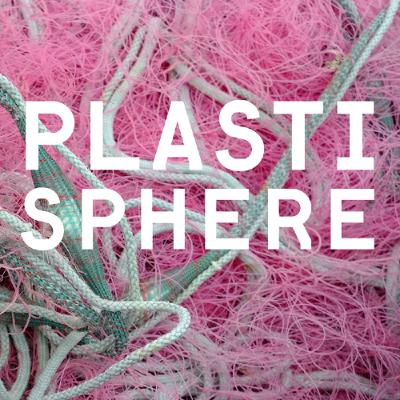
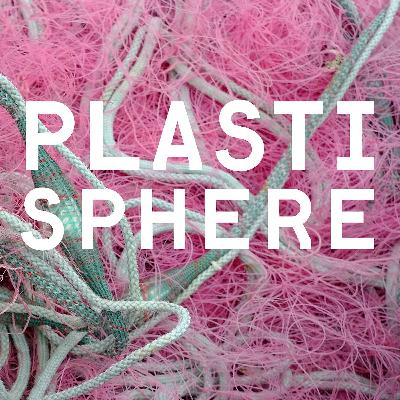
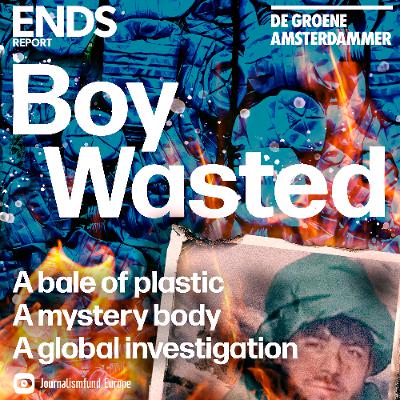
![How [Not] to Make a Plastics Treaty - Update from Geneva (INC 5.2.) with Neil Tangri How [Not] to Make a Plastics Treaty - Update from Geneva (INC 5.2.) with Neil Tangri](https://s3.castbox.fm/00/e4/ab/94873893ff76225c4ad3e904688aecdfd4_scaled_v1_400.jpg)
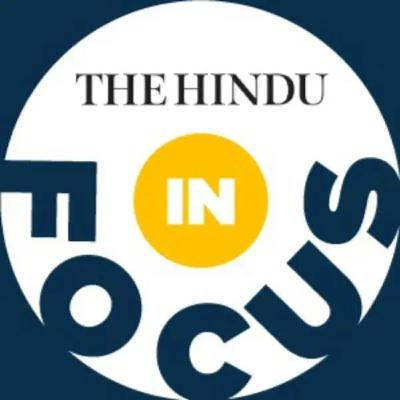
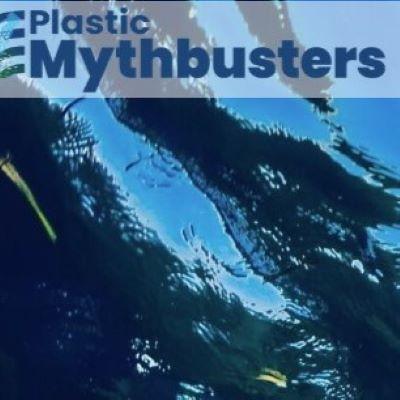



Good content. loving this